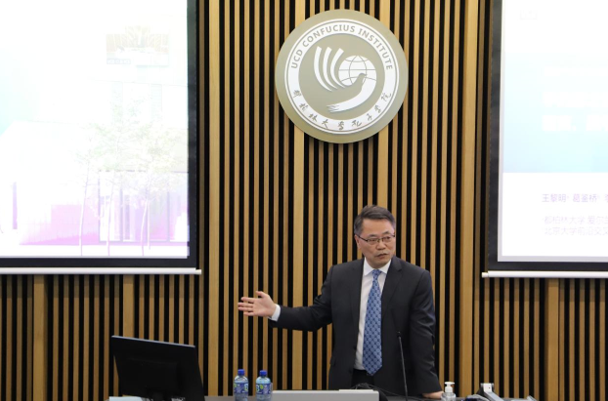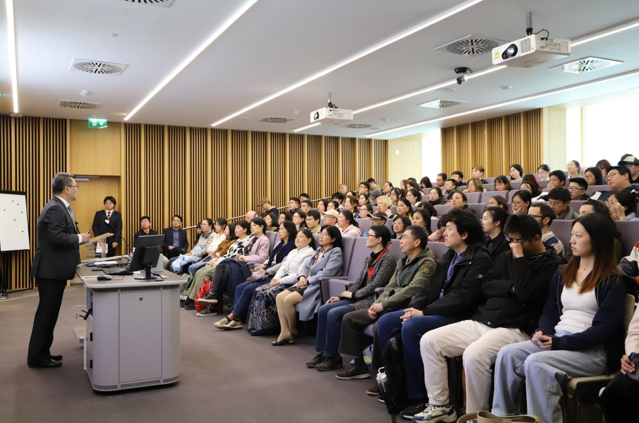55th Confucius PhD Forum successfully held
On April 30, 2024, the 55th Confucius PhD Forum was successfully held at the UCD Confucius Institute, marking one of the special events in celebration of the 15th “International Chinese Language Day”. Professor Liming Wang, the Director of the Irish Institute for Chinese Studies at UCD and the UCD Confucius Institute, delivered a public lecture entitled "A New Answer to the Needham Question: Language, Mathematical Thinking and Brain Function". The lecture, conducted both online and offline, attracted nearly three hundred enthusiastic audience members, including Ms. ZHU Xikun from the Education Section of the Chinese Embassy in Ireland, as well as other guests, teachers and students.

By comparing the mathematical performance of Chinese and Western students, as well as the level of development of mathematics in ancient and present China, Professor Liming Wang firstly introduced the renowned "Needham Question" (Despite significant contributions to human technological progress in ancient China, why did modern science not arise in China?) and outlined the issues and background of the research. He then addressed the "Needham Question" from a fresh perspective, exploring the inherent correlation between language, mathematical thinking and brain function. Furthermore, based on the differences in the impact of Chinese (tonal and pictographic script) and Western languages (alphabetic writing) on brain language function characteristics, Professor Wang also analyzed the influence of different languages on mathematical thinking patterns, as well as on brain neural mechanisms and structure.

Finally, Professor Wang reconstructed the triangular relationship between language, mathematical thinking and brain function based on the theory of division of labour between left and right brains, arguing that language learning affects mathematical thinking patterns and advocating for the implementation of a bilingual education model of "Chinese + alphabetic languages".

In the following Q&A session, Professor Wang and the students discussed the bilingual learning of ideographic and alphabetic writing systems and their effects on mathematical thinking, brain function, and structure. They emphasized that countries and ethnic groups whose native language is alphabetic should pay attention to learning Chinese to promote cognitive training, right-brain development, and the coordination between the left and right hemispheres of the brain. The outcomes of this emphasis may be beneficial for enhancing the intelligence of learners.
Video Share


